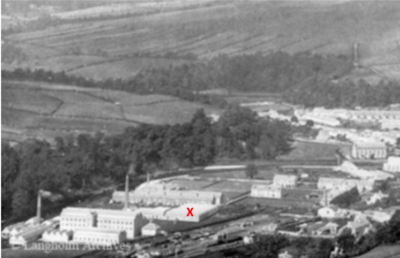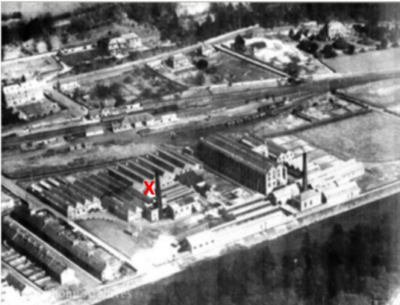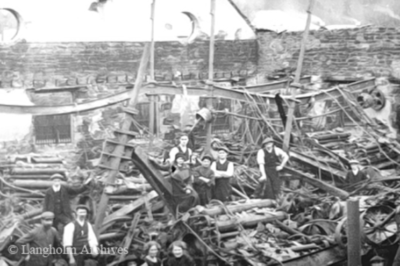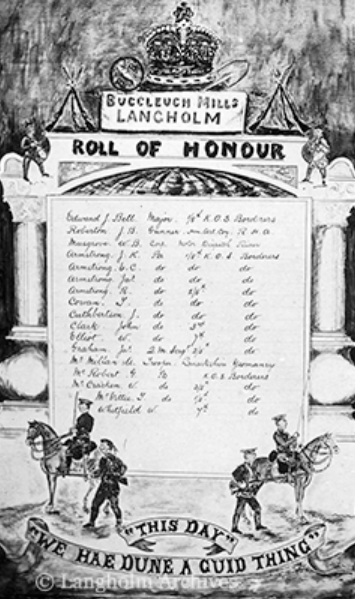Former draper and woollen mill warehouse foreman Arthur Bell (1843-1929) bought Criterion Mill in 1886 and renamed it ‘Buccleuch Mill’, marked by the red X in the photos below. It was located next to the River Esk, between Kilncleuch Mill and the terraced houses of Caroline Street.

It was also next to the railway station, convenient for logistics.

Criterion Mill had been built in 1878 for William Scott (1852-1906) and Henry Erskine (1854-1896). William Scott was the youngest uncle of Tom Scott of Waverley Mill. Henry Erskine was from Kincardineshire and was Langholm’s inspector of the poor and registrar, recording his own suicide in the registry (see 11th August in the Diary).
Fire was a constant threat in the mills and in January 1914 Buccleuch Mills had a major blaze in its carding and spinning department, although the premises were quickly rebuilt.

There were 17 Buccleuch Mill employees who served in the Great War, including Arthur’s son Major Edward Bell (1875-1954). The phrase at the bottom of the Roll of Honour below is taken from the Common Riding’s crying of the fair: ‘This day we hae dune a guid thing’ (Today we have done a good thing).

On Arthur Bell’s death in 1929, the company was in the hands of Major Edward Bell, whose son Gilbert (1902-1980), the only of his three sons to be interested in manufacturing, became a director.
In 1946, the company Arthur Bell & Sons was renamed Arthur Bell (Scotch Tweeds) Ltd to avoid possible confusion with a well-known whisky manufacturer.

After a period under Gilbert’s son Arthur Bell (1930-2015), the company was sold to Yorklyde plc in 1988, then to British Mohair Holdings in 2002, which closed the business in 2003.